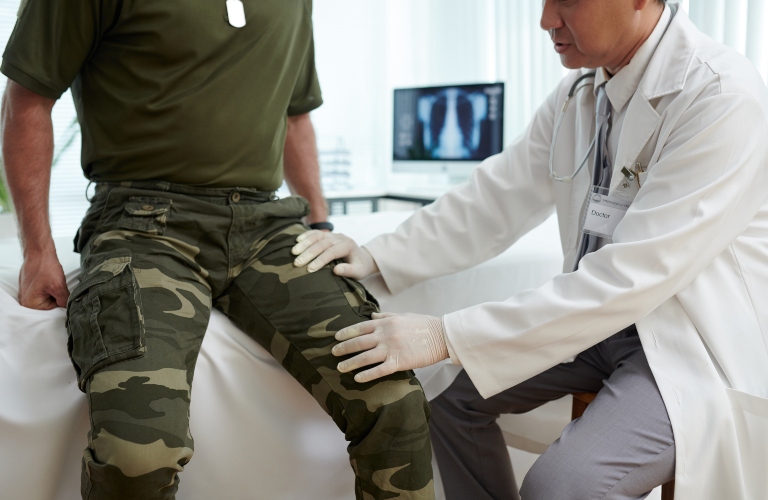
The Importance of Medical Evidence in VA Claims
A successful VA disability benefits claim will require a veteran to present compelling medical evidence that establishes the existence of a disabling medical condition, the severity of that condition, and the connection between that condition and the veteran’s military service. Thus, medical evidence represents a critical part of a VA disability benefits application.
Understanding Medical Evidence
In a VA disability benefits claim, medical evidence may come in various forms, such as:
- Medical records from military doctors during a veteran’s military service, VA healthcare providers, or private medical practitioners
- Diagnostic test results
- Imaging scans, including ultrasounds, MRIs, X-rays, and CT scans
- Narrative letters from treating physicians
- Progress report
- Medication records
Medical evidence should provide objective data based on medical tests and examinations or doctors’ professional opinions made to a reasonable degree of medical certainty. As a result, medical evidence may not include a veteran’s subjective statements about their condition, although doctors may use such statements in forming their medical opinions.
Establishing a Service Connection
The medical evidence in your VA claim should also establish a service connection between your military service and your disabling condition. The VA considers a medical condition service-connected if it meets at least one of three tests:
- The veteran developed an injury or illness while serving in the military and can link their current medical condition to that injury or illness
- The veteran had an injury or illness before joining the military, and serving in the military made it worse.
- The veteran developed a disabling medical condition related to active-duty service that did not manifest until after they left military service
The VA presumes a service connection for injuries and illnesses under certain circumstances, such as:
- Chronic illnesses that first manifest within one year of discharge from the military
- Illnesses caused by contact with toxic chemicals or hazardous materials
- Illnesses caused by time spent as a prisoner of war
Proving the Severity of a Condition
Medical evidence in a VA claim also helps establish the severity of the veteran’s medical condition, from which the VA assigns a disability rating to the veteran’s condition. A veteran’s total disability rating determines the amount of their monthly benefit checks. The VA will determine a disability rating for a condition based on factors such as pain levels, functional limitations, and the effect of the condition on the veteran’s daily life. Medical evidence that consistently documents these factors can help you prove the severity of your condition to maximize your disability benefits.
Common Mistakes with Medical Evidence
Frequent mistakes that veterans applying for VA disability benefits make when using medical evidence to support their claims include:
- Submitting insufficient supporting medical documentation
- Submitting outdated medical evidence (e.g., records from several years ago)
- Relying solely on subjective statements about pain, symptoms, etc.
- Failing to submit updated medical records and test results
- Not attending compensation & pension (C&P) exams requested by the VA
- Failing to obtain narrative statements from your treating physicians that summarize the medical record and provide professional opinions
Tips for Strengthening Medical Evidence in Your Claim

Veterans can bolster the strength of the medical evidence in their VA disability benefits claim by following best practices, including:
- Keeping copies of all medical records, including test results and medication records
- Attending all medical appointments and following treatment plans, recovery instructions, and medical restrictions
- Obtaining narrative reports from treating physicians and specialists
- Obtaining independent medical opinions (i.e., opinions from physicians not involved in your treatment)
- Working with a VA-accredited disability benefits attorney to determine what evidence you need for your claim.
Contact a VA Disability Benefits Lawyer Today
An experienced VA disability benefits attorney can help you gather and organize the medical evidence needed to prove your eligibility for benefits. Contact Veteran Benefits Law Group today for a free, no-obligation consultation with a knowledgeable legal advocate to get assistance with filing your VA disability benefits application.
Share This Story
Interested in this topic? Your friends might be too! Consider sharing this story to your social media channels and look like a smart, sophisticated resource of information.

